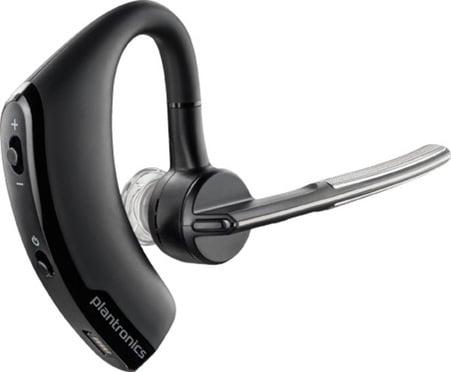New Trial Push in Phone Headset Antitrust Case Cites Court's Handling of Deleted Emails
GN Netcom Inc. is asking for a new trial in its antitrust case against Plantronics Inc., arguing that a Delaware federal judge did not go far enough in punishing its opponent for deleting emails that provided germane evidence in the case.
November 10, 2017 at 03:23 PM
14 minute read

GN Netcom Inc. is asking for a new trial in its antitrust case against Plantronics Inc., arguing that a Delaware federal judge did not go far enough in punishing its opponent for deleting emails that provided germane evidence in the case.
The move comes less than a month after a federal jury in Wilmington cleared Plantronics of allegations that its distributor agreements had violated U.S. antitrust law, despite instructions that it could assume the thousands of spoliated emails would have cut against the headset-maker's defense.
On Thursday, GN told U.S. District Judge Leonard P. Stark of the District of Delaware that the instructions had only confused jury members, and argued that Plantronics instead should have been hit with a dispositive sanction, in addition to a $3 million penalty that had already been levied by the court.
“This is most obvious from the fact that the jury found GN had proven the relevant market, but did not find for GN on its substantive antitrust claims, all of which turned on GN's ability to put forth exactly the type of evidence that Plantronics intentionally, and in bad faith, deleted in this case,” GN's attorneys said in a 21-page court filing.
“The jury's verdict makes clear that the court's sanction of a permissive adverse inference did nothing to cure the prejudice to GN caused by Plantronics' spoliation of evidence.”
Last summer, Stark found that Don Houston, Plantronics' senior vice president of sales at the time, had ordered employees to delete corporate emails during discovery, wiping out potentially thousands of documents that could have helped GN build its case. Houston has since left the company.
The bad faith spoliation cost Plantronics $3 million in sanctions and another $2 million in attorney fees and costs, according to the company's regulatory filings. Stark also narrowed the scope of Plantronics' unsuccessful motion for summary judgment earlier this year and told jury members that they were allowed to infer that the deleted communications were relevant to the case.
“In other words, your role is to determine whether Plantronics' spoliation tilted the playing field against GN,” he said, according to a copy of the final instructions presented to the jury at trial in October.
In its motion, the Denmark-based firm argued that Stark instead should have entered a default judgment against Plantronics for interfering with the court proceedings. The error, GN said, was then compounded when Stark barred GN from presenting evidence that the U.S. General Services Administration had proposed barring Plantronics, at least temporarily, from continuing to serve as a government contractor after learning of the spoliation.
The decisions, GN said, allowed Plantronics to present one-sided evidence and paint the case as a dispute between a pro-government firm and a foreign plaintiff.
An attorney for Santa Cruz, California-based Plantronics did not immediately respond Friday to a call seeking comment on GN's motion. The company has said that its distributor agreements were actually pro-competitive, and it has denied any violations of U.S. antitrust laws.
In October, Plantronics said that it was now “putting the matter behind us.”
GN said that it was considering an appeal, but the decision had not impacted its bottom line for 2017. Attorneys for the company did not respond Friday to calls seeking comment on the case.
GN is represented by Christopher S. Finnerty, Jeffrey S. Patterson, Michael R. Murphy and Morgan T. Nickerson of K&L Gates and Joseph J. Farnan Jr., Brian E. Farnan and Michael J. Farnan of Farnan LLP.
Plantronics is represented by Jonathan M. Jacobson, Chul Pak, David H. Reichenberg, Robert Corp and Yuan Ji of Wilson Sonsini Goodrich & Rosati and Jack B. Blumenfeld, Rodger D. Smith II and Jennifer Ying of Morris, Nichols, Arsht & Tunnell.
The case is captioned GN Netcom v. Plantronics.

GN Netcom Inc. is asking for a new trial in its antitrust case against Plantronics Inc., arguing that a Delaware federal judge did not go far enough in punishing its opponent for deleting emails that provided germane evidence in the case.
The move comes less than a month after a federal jury in Wilmington cleared Plantronics of allegations that its distributor agreements had violated U.S. antitrust law, despite instructions that it could assume the thousands of spoliated emails would have cut against the headset-maker's defense.
On Thursday, GN told U.S. District Judge Leonard P. Stark of the District of Delaware that the instructions had only confused jury members, and argued that Plantronics instead should have been hit with a dispositive sanction, in addition to a $3 million penalty that had already been levied by the court.
“This is most obvious from the fact that the jury found GN had proven the relevant market, but did not find for GN on its substantive antitrust claims, all of which turned on GN's ability to put forth exactly the type of evidence that Plantronics intentionally, and in bad faith, deleted in this case,” GN's attorneys said in a 21-page court filing.
“The jury's verdict makes clear that the court's sanction of a permissive adverse inference did nothing to cure the prejudice to GN caused by Plantronics' spoliation of evidence.”
Last summer, Stark found that Don Houston, Plantronics' senior vice president of sales at the time, had ordered employees to delete corporate emails during discovery, wiping out potentially thousands of documents that could have helped GN build its case. Houston has since left the company.
The bad faith spoliation cost Plantronics $3 million in sanctions and another $2 million in attorney fees and costs, according to the company's regulatory filings. Stark also narrowed the scope of Plantronics' unsuccessful motion for summary judgment earlier this year and told jury members that they were allowed to infer that the deleted communications were relevant to the case.
“In other words, your role is to determine whether Plantronics' spoliation tilted the playing field against GN,” he said, according to a copy of the final instructions presented to the jury at trial in October.
In its motion, the Denmark-based firm argued that Stark instead should have entered a default judgment against Plantronics for interfering with the court proceedings. The error, GN said, was then compounded when Stark barred GN from presenting evidence that the U.S. General Services Administration had proposed barring Plantronics, at least temporarily, from continuing to serve as a government contractor after learning of the spoliation.
The decisions, GN said, allowed Plantronics to present one-sided evidence and paint the case as a dispute between a pro-government firm and a foreign plaintiff.
An attorney for Santa Cruz, California-based Plantronics did not immediately respond Friday to a call seeking comment on GN's motion. The company has said that its distributor agreements were actually pro-competitive, and it has denied any violations of U.S. antitrust laws.
In October, Plantronics said that it was now “putting the matter behind us.”
GN said that it was considering an appeal, but the decision had not impacted its bottom line for 2017. Attorneys for the company did not respond Friday to calls seeking comment on the case.
GN is represented by Christopher S. Finnerty, Jeffrey S. Patterson,
Plantronics is represented by Jonathan M. Jacobson, Chul Pak, David H. Reichenberg, Robert Corp and Yuan Ji of
The case is captioned GN Netcom v. Plantronics.
This content has been archived. It is available through our partners, LexisNexis® and Bloomberg Law.
To view this content, please continue to their sites.
Not a Lexis Subscriber?
Subscribe Now
Not a Bloomberg Law Subscriber?
Subscribe Now
NOT FOR REPRINT
© 2025 ALM Global, LLC, All Rights Reserved. Request academic re-use from www.copyright.com. All other uses, submit a request to [email protected]. For more information visit Asset & Logo Licensing.
You Might Like
View All


Zoom Faces Intellectual Property Suit Over AI-Based Augmented Video Conferencing
3 minute read
Etsy App Infringes on Storage, Retrieval Patents, New Suit Claims
Trending Stories
- 1States Accuse Trump of Thwarting Court's Funding Restoration Order
- 2Microsoft Becomes Latest Tech Company to Face Claims of Stealing Marketing Commissions From Influencers
- 3Coral Gables Attorney Busted for Stalking Lawyer
- 4Trump's DOJ Delays Releasing Jan. 6 FBI Agents List Under Consent Order
- 5Securities Report Says That 2024 Settlements Passed a Total of $5.2B
Who Got The Work
J. Brugh Lower of Gibbons has entered an appearance for industrial equipment supplier Devco Corporation in a pending trademark infringement lawsuit. The suit, accusing the defendant of selling knock-off Graco products, was filed Dec. 18 in New Jersey District Court by Rivkin Radler on behalf of Graco Inc. and Graco Minnesota. The case, assigned to U.S. District Judge Zahid N. Quraishi, is 3:24-cv-11294, Graco Inc. et al v. Devco Corporation.
Who Got The Work
Rebecca Maller-Stein and Kent A. Yalowitz of Arnold & Porter Kaye Scholer have entered their appearances for Hanaco Venture Capital and its executives, Lior Prosor and David Frankel, in a pending securities lawsuit. The action, filed on Dec. 24 in New York Southern District Court by Zell, Aron & Co. on behalf of Goldeneye Advisors, accuses the defendants of negligently and fraudulently managing the plaintiff's $1 million investment. The case, assigned to U.S. District Judge Vernon S. Broderick, is 1:24-cv-09918, Goldeneye Advisors, LLC v. Hanaco Venture Capital, Ltd. et al.
Who Got The Work
Attorneys from A&O Shearman has stepped in as defense counsel for Toronto-Dominion Bank and other defendants in a pending securities class action. The suit, filed Dec. 11 in New York Southern District Court by Bleichmar Fonti & Auld, accuses the defendants of concealing the bank's 'pervasive' deficiencies in regards to its compliance with the Bank Secrecy Act and the quality of its anti-money laundering controls. The case, assigned to U.S. District Judge Arun Subramanian, is 1:24-cv-09445, Gonzalez v. The Toronto-Dominion Bank et al.
Who Got The Work
Crown Castle International, a Pennsylvania company providing shared communications infrastructure, has turned to Luke D. Wolf of Gordon Rees Scully Mansukhani to fend off a pending breach-of-contract lawsuit. The court action, filed Nov. 25 in Michigan Eastern District Court by Hooper Hathaway PC on behalf of The Town Residences LLC, accuses Crown Castle of failing to transfer approximately $30,000 in utility payments from T-Mobile in breach of a roof-top lease and assignment agreement. The case, assigned to U.S. District Judge Susan K. Declercq, is 2:24-cv-13131, The Town Residences LLC v. T-Mobile US, Inc. et al.
Who Got The Work
Wilfred P. Coronato and Daniel M. Schwartz of McCarter & English have stepped in as defense counsel to Electrolux Home Products Inc. in a pending product liability lawsuit. The court action, filed Nov. 26 in New York Eastern District Court by Poulos Lopiccolo PC and Nagel Rice LLP on behalf of David Stern, alleges that the defendant's refrigerators’ drawers and shelving repeatedly break and fall apart within months after purchase. The case, assigned to U.S. District Judge Joan M. Azrack, is 2:24-cv-08204, Stern v. Electrolux Home Products, Inc.
Featured Firms
Law Offices of Gary Martin Hays & Associates, P.C.
(470) 294-1674
Law Offices of Mark E. Salomone
(857) 444-6468
Smith & Hassler
(713) 739-1250






